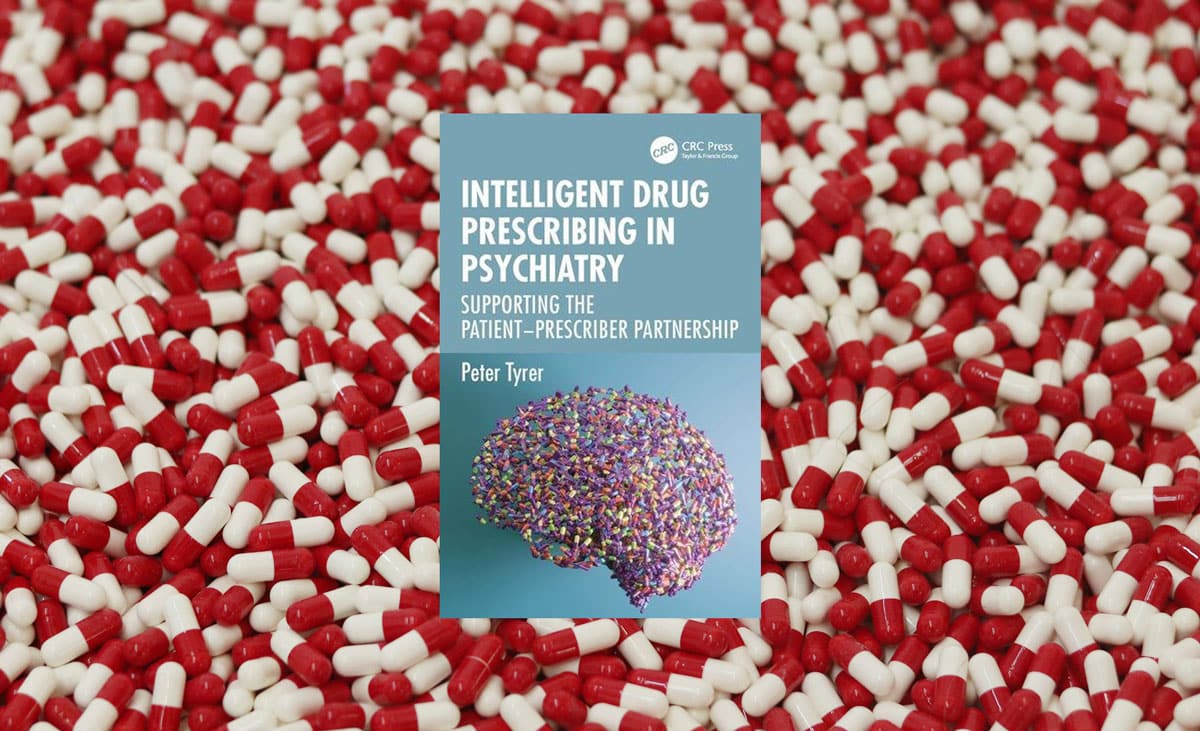Christopher Dowrick is Emeritus Professor in the Department of Mental Health and Primary Care, University of Liverpool; a GP in north Liverpool; and past Chair of the WONCA Working Party for Mental Health.
In this thoughtful monograph, Peter Tyrer argues for a via media between the perspectives of those who consider drug therapy to be an essential element of psychiatric practice, and those who are concerned that the massive increase in psychotropic prescribing that we have seen in recent decades does little good and much harm. His aim is to encourage consensual prescribing based on open and honest dialogue between patients and prescribers; this book is therefore designed to be equally accessible to both.
In a series of refreshingly brief chapters, Tyrer summarises the difference between drug-centred and disease-centred models of prescribing, offers a succinct introduction to pharmacokinetics, and reminds us that we can at best have only partial understanding of the mechanisms of action of psychotropic drugs.
“… [this book] reminds us that we can at best have only partial understanding of the mechanisms of action of psychotropic drugs.”
He urges both prescriber and patient to be careful when deciding whether a particular drug is likely to help a particular patient with their particular problem. While correctly acknowledging the considerable uncertainty about the validity of many psychiatric diagnoses, including schizophrenia and depressive disorders, he believes that they may nevertheless be useful guides towards whether (and which) drug therapy might be indicated. He has a longstanding research interest in personality disorders, so it is not surprising to find him proposing that both patients and prescribers take time to consider how personality types may affect their views on drug treatment.
Two lively chapters debate the (overstated) concerns about benzodiazepine prescribing, and the potential for confusing withdrawal symptoms with addiction. He highlights the importance of recognising the placebo response and proposes a range of ways in which consensual deprescribing can be built on a successful prescriber–patient partnership.
Tyrer’s case is built on a combination of information on diagnoses and drugs, research evidence from randomised controlled trials conducted by himself and many others, some colourful clinical anecdotes (including one on his own idiosyncratic use of spare placebo tablets and another on a dubious demonstration of erectile dysfunction treatment in Las Vegas), and a set of highly informative case studies.
For me, the highlight of this book is the penultimate chapter, built around five realistic clinical scenarios. Here we find ample demonstration of Tyrer’s central proposition: that mutual politeness and respect between prescriber and patient, combined with a spirit of open enquiry and the acknowledgement of uncertainty, offer a sound basis for effective prescribing practice.
Featured book: Peter Tyrer, Intelligent Drug Prescribing in Psychiatry: Supporting the Patient-Prescriber Partnership, CRC Press, 2024, PB, 170pp, £17.24, 978-1032609805
Featured photo by analuisa gamboa on Unsplash.






